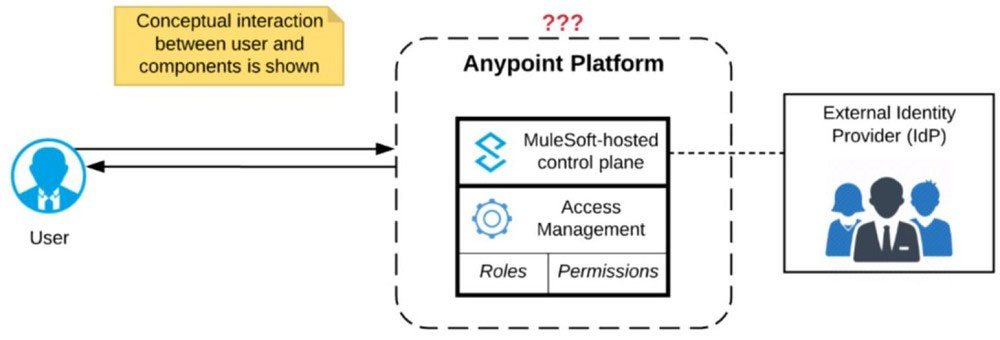Refer to the exhibit. Anypoint Platform supports role-based access control (RBAC) to features of the platform. An organization has configured an external Identity
Provider for identity management with Anypoint Platform.
What aspects of RBAC must ALWAYS be controlled from the Anypoint Platform control plane and CANNOT be controlled via the external Identity Provider?
